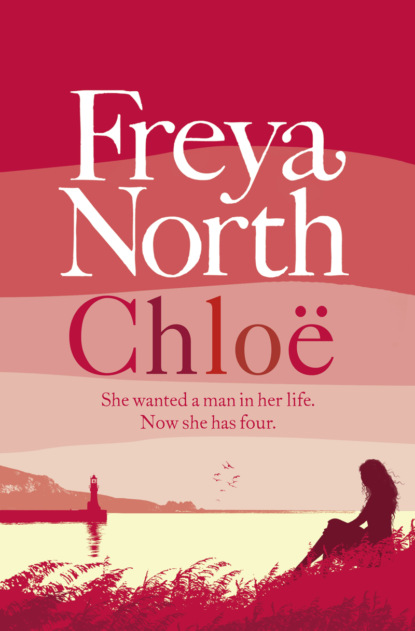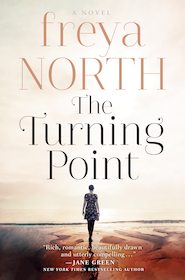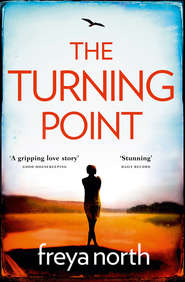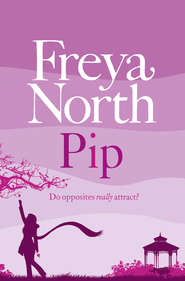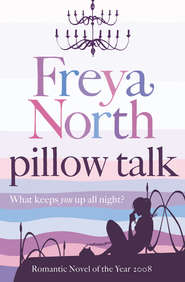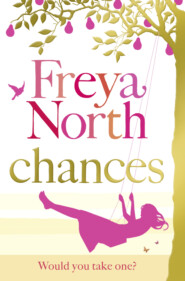По всем вопросам обращайтесь на: info@litportal.ru
(©) 2003-2024.
✖
Chloe
Автор
Год написания книги
2018
Настройки чтения
Размер шрифта
Высота строк
Поля
Mac hadn’t the heart to tell the boy that Ireland was usually seen on the left, not the right, of mainland Britain so he patted William on the head.
‘Along with diamonds, clay is the most precious thing the earth gives us,’ he said sternly, tweaking William’s ear and motioning him to sit. ‘Man himself was fashioned out of the stuff.’
While Mac and William’s father shared a pipe and a memory or two, William perched on a stool in a corner and, like Little Jack Horner, stuck his thumb deep and with relish into the clay. Instinctively, he squeezed against it with his first three fingers and began to pinch a slow, clockwise path around his thumb with deliberation and reverence. The ball had become a bowl.
That afternoon he made two more. The next week he was coiling. Bowls, urns, pots; vessels all for they both contained and revealed space. Intuitively, William made shapes where the space inside determined the form, and he built forms which described the space they occupied. At nine years old, he had no idea he was doing either. Mac was convinced that first afternoon that the child was a prodigy and, as a consequence, saw no need for any specialized child-conversing technique. With this boy he could talk unguardedly about clay; a feat rarely possible with contemporaries. The boy, too, lost all awkwardness and stilted politeness. They could, in fact, just chat. They could also be sound and secure in each other’s silence. The clay had wedged shut the generation gap and had fired impermeable a friendship between them. Far more precious than diamonds.
For ten years, until he went to college, William arrived at Mac’s at nine every Saturday and Sunday morning and most afternoons during school holidays. That he forfeited a coveted place in the school football team and sacrificed initiation into the intricacies of adolescent sex, bothered him not at all. A vessel, growing and undulating under his hands, damp and silky to the touch, was far more sensual a proposition than a hasty grope in a musty smelling cloakroom. Though he had yielded to the latter on a few occasions, the forms over which he ran his hands invariably felt too bony to ever pose a preoccupation, or even much of a distraction. So, William forsook teenage sport in all its guises and probably saved himself a great deal of injury. He worked harmoniously alongside Mac who produced his renowned stoneware tableware which the local cafés bought in bulk and which he sold at inflated prices to tourists. Dry glazed in trademark earth colours which Mac called ‘home-made Cornish sludge’, his pieces were coveted as quintessential souvenirs of the county, just like Cornish fudge and clotted cream. With the onset of arthritis, his time at the wheel was limited to a precious hour or so a day but his prices had risen accordingly and the last laugh was still all his.
Mac lived on the outskirts of a classic Cornish harbour village and the smell of fish, diesel and sea solicited William from half a mile off. As he wound his way down into the village and up through the other side, the gulls yelled and wheeled with a scavenging greed absent from those which seemed to circle just for the hell of it over the cliffs beyond Peregrine’s Gully. Alongside the gulls, jovial voices bantered out from the harbour and every now and then a rusty local van stalled and beeped its way through the narrow main street headed for the fishmongers of Falmouth and Penzance. For William, who had uttered hardly a word all week, let alone held a conversation, the noise was deafening and it was with some relief that he let himself in to Mac’s cottage.
‘Don’t tell me you have a car?’ were Mac’s first words, his face aghast.
‘Gracious no!’ exclaimed William once he had his breath back. ‘Whatever made you think that?’
‘That look! On your face. That’s the look people with cars wear when they arrive. That’s what traffic jams and petrol fumes and three-point turns do! Cars distort the physiognomy, dear boy. A facial expression exclusive to the late twentieth century. Like this,’ he scrunched his face tight shut, ‘and like this,’ he said, opening his features but fixing them askew in apparent angst.
‘I see,’ mulled William who would have quite liked to laugh.
‘So,’ said Mac, with a clap of his hands ushering William firmly inside. ‘She’s still got you making dinner services for the bourgeoisie?’
‘Well, for a trumped-up bistro in Crickhowell, at any rate,’ William laughed lightly, unwinding his scarf and settling deep into an old Windsor chair.
‘Crick-who’ll? Where’s that then?’
‘South-west Wales, I believe.’
‘A hundred and eighty pieces?’
‘Indeed – with an option on serving platters and small table vases at a later date. I drew the line at ashtrays.’
‘As I would damn well hope! Mind you, nice little earner, my boy!’
‘Less thirty per cent.’
‘Ah!’
‘And, of course, the subjugation of my own creativity.’
‘Which, I’d confidently say, is worth far more than thirty per cent. But there we are. And here we are! Welcome, dear dear boy!’
After two cups each of strong tea, they sat and said not much over a pipe. William was not a smoker and yet with Mac he would gladly puff away an afternoon. He was not sure why, maybe it was to capture any remaining shred of his father, maybe it was to keep Mac company. Perhaps it was just to be polite. Maybe it was because it was downright pleasant. Just as William never had to introduce himself when he phoned, so he was relaxed enough in Mac’s company to sit in affable silence. William noticed, even through the blue haze of tobacco smoke, that Mac was now quite white. And yet his thick head of hair and extravagant eyebrows, his neat moustache and tanned skin gave not the impression of age but of vitality. As if there had been no pollution or stress during his life to colour him any different. William had always known Mac as fair, hirsute and lively. He was merely two shades lighter now, that was all.
Mac observed that William was leaner than when he had last seen him, and that it suited him. His mid-brown hair flopped becomingly here and there making his dark brown eyes all the more elusive and attractive. He noticed too that William’s complexion was showing the indelible signs of living amidst the tawny moorland and the lash of the sea air. Ruddy, translucent and awash with health and hardiness. Only his hands belied his habitat for they were elegant, clean and pale. A concert pianist, perhaps; a surgeon, maybe. A ceramicist, of course.
Once the pipes were cool and the fire needed stoking, Mac eased conversation in.
‘My boy,’ he started, poking methodically at the embers, ‘I know you don’t need me to tell you to give up the wholesale business and make a go of things as a potter.’ He raised an eyebrow at William and lifted the corner of his mouth to say ‘Well then?’ silently but quite undeniably.
‘You’re in the wholesale business of sorts too,’ protested William gently, ‘with your chunky mugs and squat teapots and home-made Cornish sludge.’
‘Ah,’ said Mac, tapping his pipe and absent-mindedly putting it back between his teeth, ‘but I do not have your skill. You’re the master craftsman. I just churn out – stuff. We both work with clay, but we’re worlds apart in terms of quality, of vocation.’
‘You know clay better than anyone,’ said William fixedly.
Mac chuckled and sucked on the pipe. ‘Hell, I’ve even started putting the odd piskie here and there – peeping behind a mug handle; lounging on a plate rim; peering up from the depths of a jug!’
‘Pixie,’ said William.
‘Piskie,’ agreed Mac, retrieving a mug with a small figurine clambering over the rim, for proof. ‘See! Positively Walt Disney!’ he basked.
‘But you’re the one who inspired me! Who still does,’ William protested. ‘You showed me just what clay is. What it can do. What it can be. That it is organic, alive. As precious a commodity as diamonds. You are the sole reason that I am where I am and that I work with clay at all. That I love the stuff and that it is my very life-force.’
‘Dear boy! You flatter! What I am trying to say is, I know where I’m at – surely that must be the goal of every artist? My limitations as a potter are also my achievements,’ said Mac, giving the clay elf a ping with his thumb and forefinger. ‘I feel neither restricted nor frustrated for I am content to make what I make, glaze as I do,’ he declared, suddenly on his feet, twirling the fire-iron as if he were Gene Kelly. William held the mug and looked at the figurine; the ensemble was unashamedly kitsch and yet a second look revealed remarkable, secret little details that quite took him aback.
‘And I know what I want to do.’ He raised his face to Mac and looked most forlorn. ‘But how can I when another depends on me?’
Mac pursed his lips and leant against the fire-iron, rocking on his heels.
‘That Saxby woman has more than one young potter churning out pot-boilers to keep her warm. Toasting more like – she must be making a mint out of you.’ He enjoyed his ‘pot-boilers’ pun but could see it was quite lost on William.
‘But Mac, if I don’t – for her … Then I can’t – with her.’
Mac cocked his head and regarded William until the penny dropped.
‘And how great a loss is that?’
‘She’s taught me, er, everything I know in that department. I just feel I ought, you know, to stick around? She’s having a hard time – convinced that her youth and looks are passing her by.’
‘Aren’t they just!’ chuckled Mac just within earshot. ‘You mean she’s giving you a hard time. Well,’ he said, ‘I’ve taught you everything you need to know about clay and I would hope to goodness that you don’t carry soppy guilt around about that! Though,’ he furthered, tracing a semicircle across the flagstone floor in his slippered feet, ‘a visit a little more now than then would be nice.’
‘I was thinking that myself, as I walked here. Made a Not-So-New-Year’s resolution of sorts,’ William admitted apologetically.
‘Dear boy, I’m jesting! Can’t you tell? Every day as I sit at my wheel I know exactly where you are, that we both have slurry on our hands and an image of the finished piece in our heads!’
‘Morwenna –’ started William tangentially. And closed the sentence at just the one word. His discomfort was tangible and though Mac was tempted to jest further to lighten the load, he knew that William required more. It was the advice of a father that William sought. Or father figure. One, indeed, who knew.
‘There’s the rub!’ Mac thought to himself but said out loud, unwittingly.
‘Pardon?’ said William, who was miles away – he had spied a bowl he had made some years before. Glazed in Lusty Red.
The humming girl’s freckles.
Mac was speaking.
‘I’m not one really to advise on the love element in life, never having had a wife, having only ever had women and never really loved any of them,’ Mac trailed off with a lascivious twink in his eye. ‘But, I do know what people in love look like, how they behave. I saw it in your father, many many years ago.’
‘With Mother?’ said William with certain incredulity.





